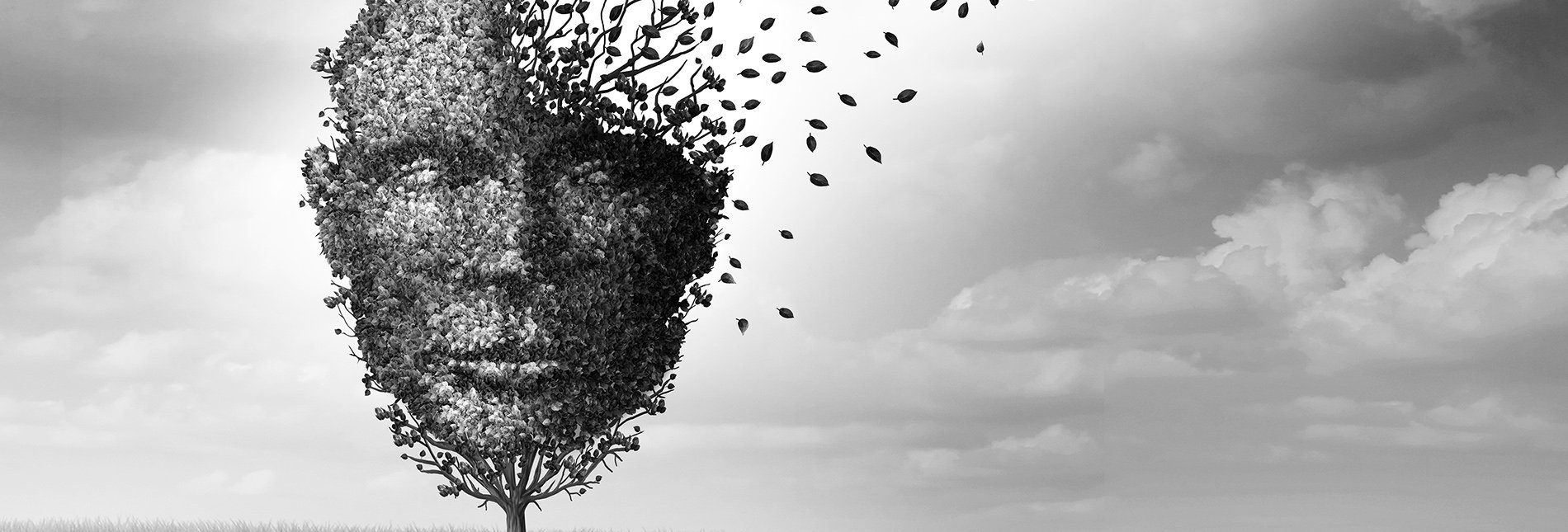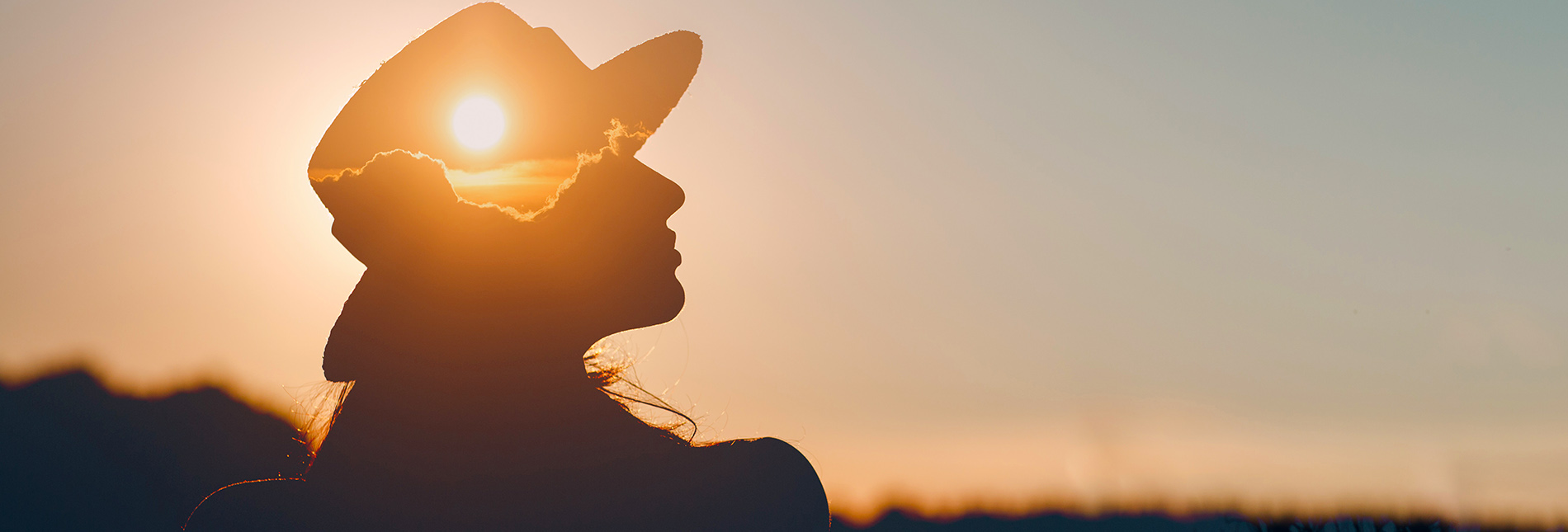The past year has been defined by overwhelming stress. While COVID-19 remains the overarching trigger, a slew of other stressors remain on the boil: domestic economic uncertainty and a global refugee crisis; rising crime rates and mass shootings; climate change and relentless wildfires; and polarized politics and a Capitol insurrection.
Meanwhile, the war that’s at the heart of whether we move past the pandemic anytime soon – effective vaccines vs. corrosive misinformation – rages on.
In response, a national mental health crisis has emerged. Here in Colorado, Children’s Hospital Colorado in May declared a “State of Emergency” for youth mental health.
In honor of World Mental Health Day on Oct. 10, we are sharing a sample of the stories that highlight how physicians, researchers, educators and healthcare leaders at the University of Colorado Anschutz Medical Campus are offering innovative strategies, clinical approaches and empathetic care in response to the crisis.
Also, World Mental Health Day offers an opportunity to remind the campus community about the many mental health resources on the CU Anschutz Medical Campus. These resources are available to our diverse campus community, and anyone struggling with stress, anxiety, depression or other mental health issue is encouraged to seek out help.

Children’s Hospital Colorado Declares a ‘State of Emergency’ for Youth Mental Health
Jena Hausmann, CEO of Children's Hospital Colorado, declared a "State of Emergency" in youth mental health on May 25, a first in the 117-year history of the hospital system. That declaration came during a pediatric mental health media roundtable event that attracted more than 30 journalists from across the state and several national reporters.

Mental Health Crisis Is the Next Wave of Pandemic
Experts on the University of Colorado Anschutz Medical Campus are bracing for a predicted next wave of the COVID-19 pandemic – a mental health crisis. In anticipation of the surge, mental health providers are casting a wide net of support resources to the multitudes whose lives have been upended in unprecedented ways. Some of the most vulnerable include healthcare professionals, families, the economically distressed and people with pre-existing mental health issues.

Neill Epperson, MD: A Conversation About the State of Mental Health in Colorado, Expanding Resources, and Why the Brain Is So Intriguing
With May being Mental Health Month, we sat down with Neill Epperson, MD, professor and chair of the CU Department of Psychiatry, for a wide-ranging conversation about expanding mental health resources and services to the CU Anschutz Medical Campus and broader community in the midst of the COVID-19 pandemic, her new “Mind the Brain” podcast, the state of mental health in Colorado, and why the brain is so intriguing.

Pandemic Care Mirrors Military Medicine in Stressful Ways
Providers don protective gear before entering procedure rooms where the enemy lurks. They spend their days under rapid fire, battling to save patients’ lives while protecting their own. The ever-present enemy rules their workdays and even follows them home. That describes a day in the life of a COVID-19 healthcare provider. It reminds Kathleen Flarity, DNP, PhD, of practicing medicine in a warzone. “I’ve had nurses reach out to me expressing their anguish over caring for seriously ill COVID-19 patients,” said Flarity, deputy director of the CU Anschutz Center for COMBAT Research in the Department of Emergency Medicine and UCHealth research nurse scientist.

Want to Banish the COVID Blues? Think ‘Pawsitive’
Anxiety and cabin fever can stem from the stay-at-home orders impacting American lives for the past few weeks. But for nearly 85 million U.S. families, their households offer something that can reduce their feelings of angst and isolation. And it doesn’t come from the fridge. This popular attitude-enhancer offers a sense of connection and can lower everything from stress and heart rate to anxiety and loneliness. The miracle elixir inspires outdoor exercise, boosting physical and mental health and levels of the sun’s mood-lifting vitamin D. It’s also cute, cuddly and dependent, pushing people out of bed in the morning and providing a sense of self-worth. A pet – especially a dog – can ease the COVID blues. That’s the message from Ann Spader, resident service dog training instructor on the University of Colorado Anschutz Medical Campus.

For LGBTQ Community, Ending the Silence Could Enhance Their Lives – and Deaths
In her second year on the job at the University of Colorado Anschutz Medical Campus, Carey Candrian, PhD, was shadowing a hospice admissions nurse as she interviewed a dying woman in the patient’s home. Another woman stood quietly by, as the nurse ticked off scripted questions from a lengthy form aimed at discovering a potential hospice patient’s wants, needs and support system. Candrian’s interest was piqued by the number of times the patient answered “no.”
Are you married? No. Do you have children? No. Do you have grandchildren? No.
Finally, when the nurse asked who helped her with doctor appointments, the patient gestured toward the woman in the corner. Then the nurse left. Candrian, a social scientist focused on end-of-life communication, stayed for her own interview with the patient in what turned out to be a defining moment in her career.

Mass Memorials: A Place to Grieve, Heal, Remember
Images of the crumbling Twin Towers are invading American living rooms and cellphones, as the 20th anniversary of one of the worst days in the nation’s history nears. From Netflix and PBS documentaries to news reports of tribute events across the country, the swell of 9/11 coverage will give rise to uncomfortable emotions for nearly everyone.
Scenes like the creeping billow of smoke that enveloped the buildings below, chasing terrified New Yorkers down the city streets and covering them in ash in an apocalyptic scene, will rekindle feelings for many, from horror and disbelief to sadness and anger.
For the survivors and families of the nearly 3,000 people killed — and the scores of people impacted by mass tragedies in this country before and since — the next few days could be an intensely steep rollercoaster ride.
“Just about every year that September 11th comes along, people who were survivors or lost someone definitely have an uptick in distress and issues,” said Steven Berkowitz, MD, a professor of psychiatry in the University of Colorado School of Medicine at the CU Anschutz Medical Campus. “It’s just the way it is.”

.png)
.jpg)
